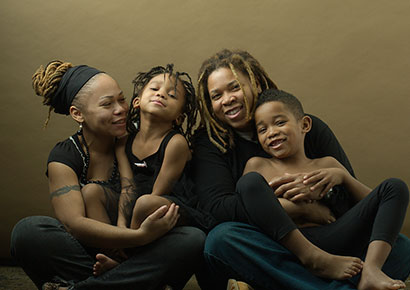UN urged to tackle health and well-being of LGBTI people
 Countries must address the health of LGBTI people, which is consistently poorer than that of the general population, says a new report.
Countries must address the health of LGBTI people, which is consistently poorer than that of the general population, says a new report.
Released by the Global Forum on MSM and HIV (MSMGF) and OutRight Action International, the report argues for a global health and development approach that is inclusive of LGBTI people.
Released ahead of this year’s UN High-Level Political Forum on Sustainable Development, the paper urges countries to recognise and address the impact of stigma, discrimination, violence, and criminalisation on health.
While data regarding LGBTI health needs are inadequate and incomplete across the globe, the data that is available demonstrates that the health of LGBTI people is consistently poorer than the general population.
The report highlights:
- The disproportionate affect HIV is having on gay and bisexual men and transwomen.
- A higher burden of poor mental health among LGBTI people compared to the general population.
- A lack of targeted and responsive sexual health information for LGBTI people, which limits their ability to protect themselves and their partners from sexually transmitted infections, particularly as young adults.
- The impact of intersecting forms of discrimination faced by LGBTI people based on gender, age, race, ethnicity, ability, class, migration status, and other factors that drive exclusion.
- The role that criminalisation, anti-LGBTI violence, fear of discrimination, cost, and lack of social support play in impeding access to health services.
“Disproportionate rates of depression, anxiety, homelessness, problem substance use, and suicide among LGBTI people can each be traced back to the stigma, discrimination, and violence they face worldwide,” commented MSMGF Executive Director, Dr. George Ayala. “Connection to community, safety, and security offset the devastating effects of social exclusion.”
The report finds that lesbian and bisexual women, transgender people, and intersex people in particular remain ignored and underserved in healthcare systems across the world.
“LGBTI people are well-aware of the health disparities taking hold and stealing lives in their communities, but are being excluded from data collection efforts,” said OutRight Action International’s Global Research Coordinator, Dr. Felicity Daly. “As a result, LGBTI communities are rendered invisible and therefore unable to make a convincing case for health financing to address their needs.”
The report offers tangible and accessible recommendations that governments can implement.
This includes gathering accurate health data on the basis of sexual orientation, gender identity and expression, and sex characteristics, in order to allow for the formation of evidence-based laws and policies that serve to promote and protect LGBTI people’s right to health.
It also urges increased funding for community-based and LGBTI-led organisations, which are crucial for collecting data and providing safe, non-judgmental health care to LGBTI people.
The report goes on to call for the banning of non-consensual medical procedures, including intersex genital mutilation, forced sterilisation, and forced anal examinations.
In its second year, the High-Level Political Forum, which runs until 19 July in New York, is where UN member states meet to review progress towards “Agenda 2030” – economic, social, and environmental sustainable development, founded on the principle of “leave no one behind.”
Leave a Reply